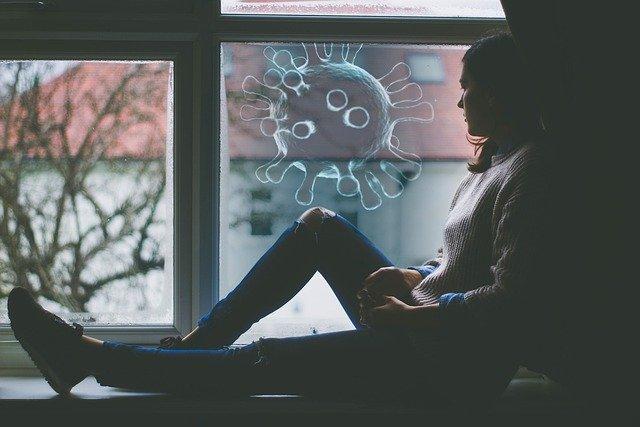UU during lockdown: campus stays open for practical lessons, exams and study spots

Lectures and tutorials on location will not take place, unless the teacher offers an online alternative. The students will hear about it from the teacher in good time. Graduation ceremonies on location are not allowed either, and may be postponed.
The exams will be carried out as planned, including those taken on location. The same goes for practical training. As of today, students must keep a distance of one and a half metres from each other. If that's not possible, then face masks are mandatory during the practical lesson.
You can also study on campus, in both libraries and the educational buildings. Students must reserve a spot and rooms can not receive more than 75 students at a time. PhD defenses may take place on location.
These measures were listed in the latest update from the Executive Board, which was sent to all employees and students on Saturday evening, after the cabinet announced that the Netherlands would go into a "hard" lockdown from 5:00 am on Sunday morning.
Christmas online, minimum number of visitors
All employees with an 'office job' still have to work from home as much as possible. The Executive Board calls on all employees to ask themselves what really needs to be done before Christmas. “Postpone all other matters for after the holidays”, the board writes, knowing that many UU employees are also at home with their children, whose schools are also closed this week.
All events, meetings and conferences have been either online or cancelled. Activities organised by study associations and the Christmas activities for internationals must also take place online now. Visiting each other is difficult with the new rule determining that people are only allowed to receive a maximum of two visitors a day. An exception was made for December 25 and 26, when people are advised to welcome four guests.
The courses set to happen at Cultural Centre Parnassos have been cancelled for the time being. Many sports facilities at Olympos have also been shut down. You can only go there for climbing, tennis and dry tooling if you make a reservation first.
Next Wednesday, the Executive Board is going to come up with a plan for after the Christmas break, which officially ends on January 9. It is not yet clear whether educational activities can be offered on campus on January 10. The cabinet will make a decision on this matter on January 3. The lockdown for the rest of the Netherlands will last until January 14.
Promise broken
During this lockdown, basically the entire country is going to be shut down. Only essential shops such as supermarkets and drug stores are allowed to open. This policy follows the advice of the Outbreak Management Team (OMT), the team of experts advising the Dutch government on how to tackle the pandemic, in order to slow down the advance of the Omikron variant of the coronavirus, which is highly transmissible. It is still unknown how sickening the new variant is, but the cabinet wants to prevent hospitals and intensive care units from being too crowded and overpressured.
In the next few weeks, the cabinet hopes to help as many people as possible with a 'booster shot', which improves people's protection against the corona virus, stated Jaap van Dissel, director of infectious disease control at the National Institute for Public Health and the Environment (RIVM), during the press conference.
At the start of the new academic year, the Minister of Education, Ingrid Van Engelshoven, had said that higher education would no longer be shut down entirely. That promise has therefore been broken as the cabinet pulls the emergency brake.
Earlier measures (such as the evening lockdown) left higher education largely untouched this autumn. The policy for higher education has been heavily criticised: to some, it takes too little account of the advance of the virus within universities. Some students felt compelled to attend exams or classes due to compulsory attendance policies, even if they had symptoms related to Covid. UU's Faculty of Social Sciences was one of the examples of places where that happened.
But the cabinet was so far refraining from announcing stricter policies. For example, higher education institutions were exempt from the one-and-a-half-metres social distancing rule. The only real limitation was that only 75 students were allowed to gather in the lecture halls.
Raw on the roof
So now there is another lockdown. The two national student organizations, LSVb and ISO, understand it, but are disappointed. “Young people's mental health is under enormous pressure because of the pandemic,” says Ama Boahene, chair of the National Student Union (LSVb). “By closing educational institutions, even more young people will have to deal with loneliness and psychological complaints.”
“The closure of higher education is hitting us hard. We were hoping that we would be able to finish the year on location, just before the Christmas holidays”, says ISO chair Lisanne de Roos. “But we are clinging to the idea that if we bite the bullet now, we can get back to face-to-face education after the Christmas holidays.”
Hard laugh
That is how the universities and colleges responded. “This news will be a hard blow to our students, lecturers and employees,” states Maurice Limmen, chairman of the Association of Universities of Applied Sciences. “We've been stressing the importance of physical education because we know how important it is for the mental health of our students. We therefore sincerely hope that this situation is short-lived.”
“Just like for the rest of the Netherlands, this is a huge setback for our staff and students”, declares Pieter Duisenberg, chair of Universities of the Netherlands. "But of course we respect the government's decision. Fortunately, exams can take place physically and the university libraries will remain open.”